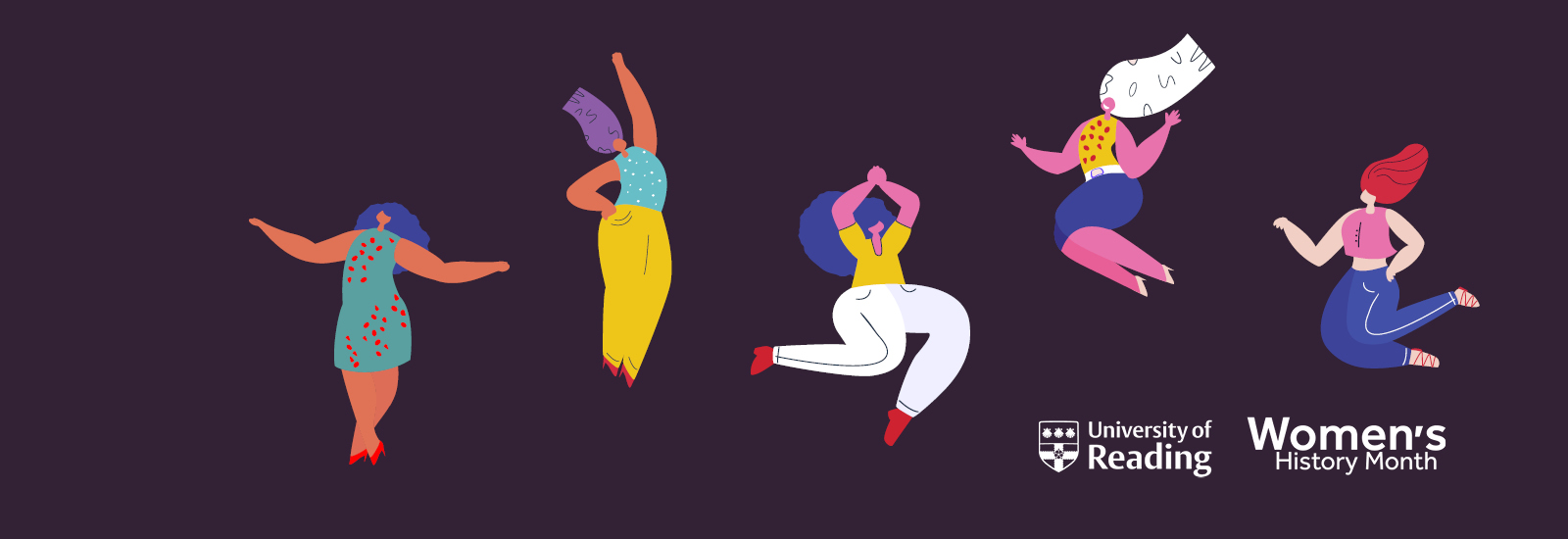Join Reading graduate, Dr Rhian Taylor, for a conversation about her journey through gender equality in IT, from academia to industry, for the 2024 Edith Morley Lecture for Women’s History Month.
Please note that all views expressed in this article are Rhian’s own.
In Rhian’s lecture she will be sharing the ups and downs of her journey, including overcoming challenges and celebrating victories in the tech world. Join her to envision a future where diversity and inclusivity thrive, breaking barriers for women in Information Technology (IT).
Wednesday 13 March, 18:30-20:00
Van Emden Lecture Theatre, Edith Morley Building, Whiteknights Campus and ONLINE (Teams Live)
All are welcome to this free lecture, but booking is essential – book your space now.
Rhian studied BSc Computer Science with Industrial Year and a PhD at Reading. Ahead of her lecture, she spoke to CONNECTED to offer an insight into her story, and why she is championing diversity and inclusion in the tech world.
Facing gender inequality
 Rhian was fortunate to be raised to believe that she could grow up to be whatever she wanted to be, and was inspired by her mother’s example. As she entered the IT sector, Rhian found she had to call upon her inner strength and resolve to pursue her passion in an industry that is not geared towards women.
Rhian was fortunate to be raised to believe that she could grow up to be whatever she wanted to be, and was inspired by her mother’s example. As she entered the IT sector, Rhian found she had to call upon her inner strength and resolve to pursue her passion in an industry that is not geared towards women.
She said: “I first became interested in computers whilst at school, but due to the lack of opportunity and support available to me in this area, I was leaning towards studying English at university.
“But then I attended the Computer Science Open Day at Reading and saw a demonstration of a project that centred around helping people with Alzheimer’s to stay independent for longer. This app connected to wearable technology that alerted carers to signs of distress, such as a raised heartbeat, and also helped around the house for example by providing steps to tasks like making a cup of tea.
“I knew straightaway that studying computer science at Reading, and developing my own ideas about tech and healthcare, was the right fit for me.”
Rhian had taken the plunge to study computer science, but the path ahead continued to present obstacles.
She explained: “As I started to pursue IT, it became very apparent that there was a massive gender gap. I had been one of only two girls in my class at A-Level and in my university cohort I was one of around 10 girls, out of 200 students. It was honestly very intimidating.
“I struggled with my confidence. It seemed that the men had been coding for years and I felt like I was starting at a massive disadvantage having not had any exposure to that.
“There weren’t many female lecturers either who could act as role models so for the first two years of my degree I didn’t see much of a future for myself in my chosen field.”
Enough is enough
It was during Rhian’s placement year at Eli Lilly and Company – a US pharmaceutical giant where Rhian now manages a team delivering IT capabilities – that her desire to champion diversity and inclusion in IT began.
She said: “It wasn’t until my placement year that I started to see where my degree could lead me. This was where I developed a passion for diversity, equity and inclusion in tech and became someone who advocates for women in STEM [Science, Technology, Engineering and Mathematics].
“While I was there, I joined an internal employee resource group that focused on improving the gender balance in IT. It was the first time I was with a group of people who were seeing all the same problems I was, or who had had experiences similar to mine and were saying enough is enough. After that I never stopped, and I will continue to always champion diversity and inclusion.
“I’m continually motivated by how far there is still to go – I want to make a difference and help those underrepresented in STEM find an easier path into it.
“If I can make it a little bit easier for someone to choose to study IT, or to pursue a tech career, either by being a role model or by taking action to make intentional changes, then it will have all been worth it.”
Inclusivity equals innovation
Rhian explained why she believes diversity and inclusion is important and how it will benefit the tech sector to close the gender gap. She said: “Like all sectors, innovation is what keeps them moving forward. In the tech sector in particular, the pace of innovation is astounding, but ultimately we could do so much more if we were more diverse and inclusive.
“Where teams are more diverse they can solve problems faster and in different ways, be more creative, and find better ways of working.
“At the end of the day, if everyone looks the same, has similar backgrounds, and similar lived experiences, then they often think and approach things similarly.
“Tech roles have such a high attrition rate for women. In order to see longer careers for women and more women in leadership in this sector, we need to address things earlier. We need to combat the age old stereotype that IT is for boys and show that activities like gaming and coding aren’t gendered.”
Book your space for Rhian’s Edith Morley Lecture – Wednesday 13 March, Whiteknights Campus or Online.







